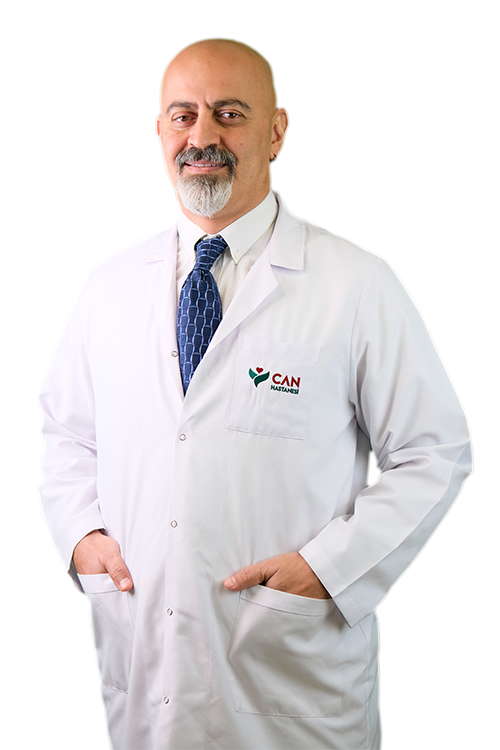What is it?
Hernia repair, also known as herniorrhaphy, is a surgical procedure to fix a hernia. A hernia occurs when an internal organ or part of it protrudes into an area where it shouldn’t be. The most common hernias happen in the abdominal area, where a part of the intestine or a piece of fat pushes through a weak spot in the abdominal wall, causing an abnormal bulge near the groin or navel. There are two main types of hernia repair:
- Traditional (open) hernia repair — The surgeon makes a several-inch-long incision to access and fix the hernia.
- Laparoscopic hernia repair — This minimally invasive procedure involves making small incisions and using a laparoscope (a telescope-like instrument with a camera) and long-handled instruments to repair the hernia.
Most people don’t need to stay overnight in the hospital after hernia repair surgery.
When is it necessary?
Hernias are diverse, with the most common type occurring when part of the intestine or fat pokes through a weak area in the abdominal wall, forming a bulge near the groin or navel. Men are more likely to develop groin hernias due to a natural small hole in the abdominal wall where the cord to the testicle passes. If this hole enlarges, it can lead to a hernia. Hernias can cause discomfort, pain, or appear as a painless lump. They often enlarge over time and won’t resolve on their own, with a small risk of the bowel getting trapped, leading to an emergency. Surgery might be considered if:
- The hernia causes discomfort or limits activities.
- The hernia is growing.
- There’s concern about the risk of bowel entrapment.
Preparation
Most hernias are diagnosed during a routine doctor’s visit, with surgery scheduled later. Your doctor will review your medical history and conduct an examination. If there’s a chance of pregnancy, inform your doctor before surgery. Pre-surgery tests, like blood tests or an electrocardiogram (EKG), may be ordered. About a week before surgery, you may need to stop taking medications like aspirin that increase bleeding risk. You’ll be asked to avoid eating or drinking starting the night before surgery, except for necessary medications. On the day of surgery, wear loose clothing and arrange for someone to drive you home. Your doctor will advise on taking regular medications with a sip of water.
How it’s done
Hernia repair can be performed under various types of anesthesia. General anesthesia will render you unconscious, while spinal, regional, or local anesthesia keeps you awake but pain-free in the surgery area. An intravenous line will provide fluids and medications. The procedure typically lasts less than one to two hours.Traditional hernia repair — The surgeon makes a several-inch-long incision near the hernia, gently pushes the herniated part back into place, and repairs the abdominal wall with stitches. Often, a synthetic mesh patch is used to reinforce the repair, reducing tension and the likelihood of hernia recurrence, although it may slightly increase scarring or infection risk.Laparoscopic hernia repair — This technique involves inflating the abdomen with a harmless gas for better visibility and space to work. A laparoscope is inserted through a small navel incision, with additional small incisions for surgical instruments. The surgeon uses the laparoscope’s camera to guide the procedure, repositioning the herniated part and securing a mesh patch over the abdominal wall weakness with staples, clips, or stitches. The small incisions are then closed with sutures or surgical tape. Laparoscopic repair requires general anesthesia and usually results in less pain and a quicker return to normal activities compared to traditional repair.After surgery, you’ll be monitored and given pain medication. Most people recover within a few hours and can go home the same day.
Follow-up
Most people can resume desk work, driving, and light activities within a few days post-surgery. Those with physically demanding jobs might need to wait two weeks or more. A follow-up visit with your doctor will occur a few weeks after surgery to remove any stitches and check incision healing. Ask your doctor when you can resume activities like sports, heavy lifting, and labor.RisksHernia repair is generally safe, but like all surgeries, it carries some risks, including:
- Infection
- Excessive bleeding
- Blood clots
- Injury to the intestine, testicle, or nearby structures
In children, hernia repair is usually successful long-term. In adults, a hernia may recur in a small percentage of cases, with higher recurrence rates in specific situations.
Our Doctors of the Department
For general questions about our Can Hospitals, please complete the form below and an admissions staff member will contact you about your area of interest.
Obesity & Metabolic Surgery

